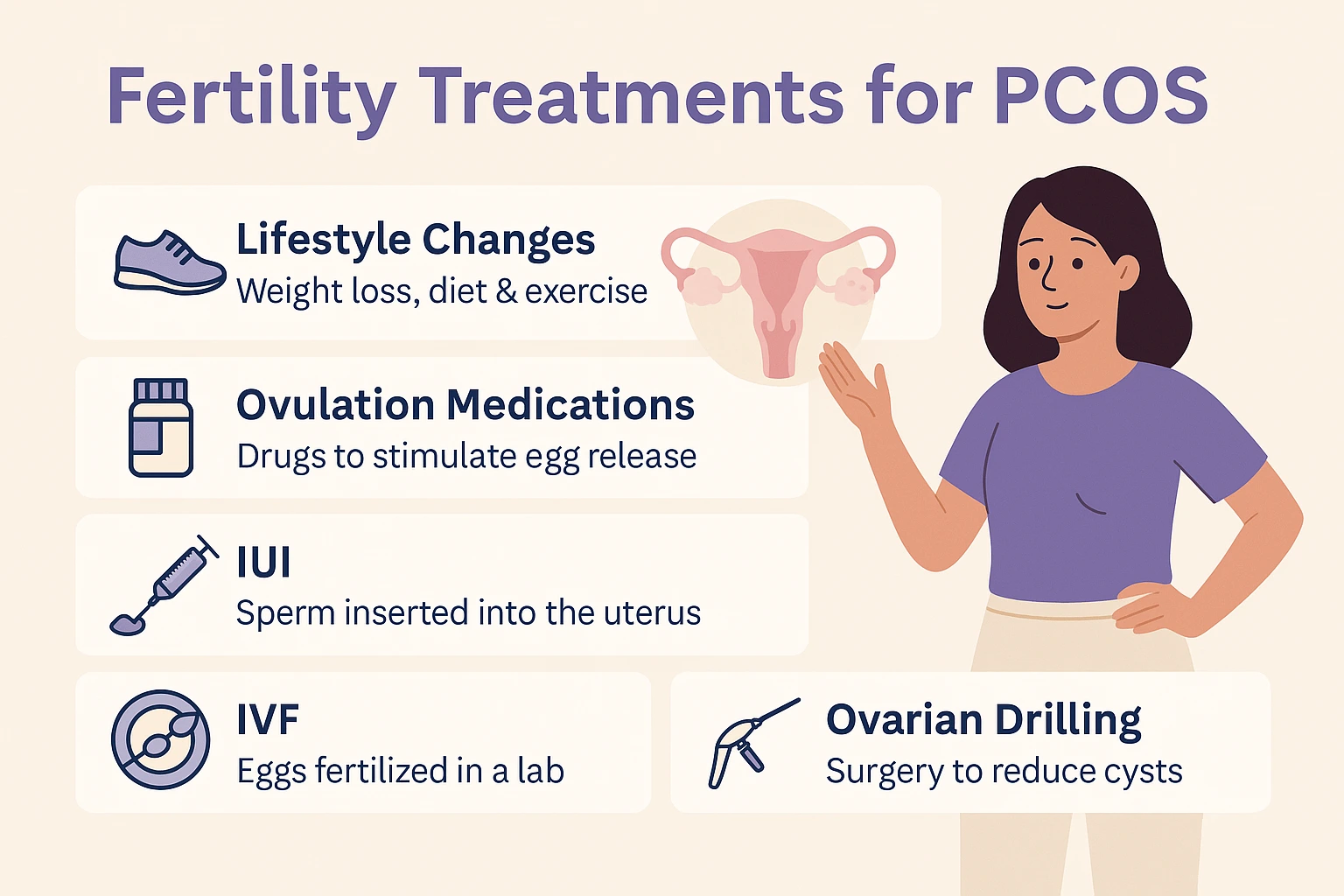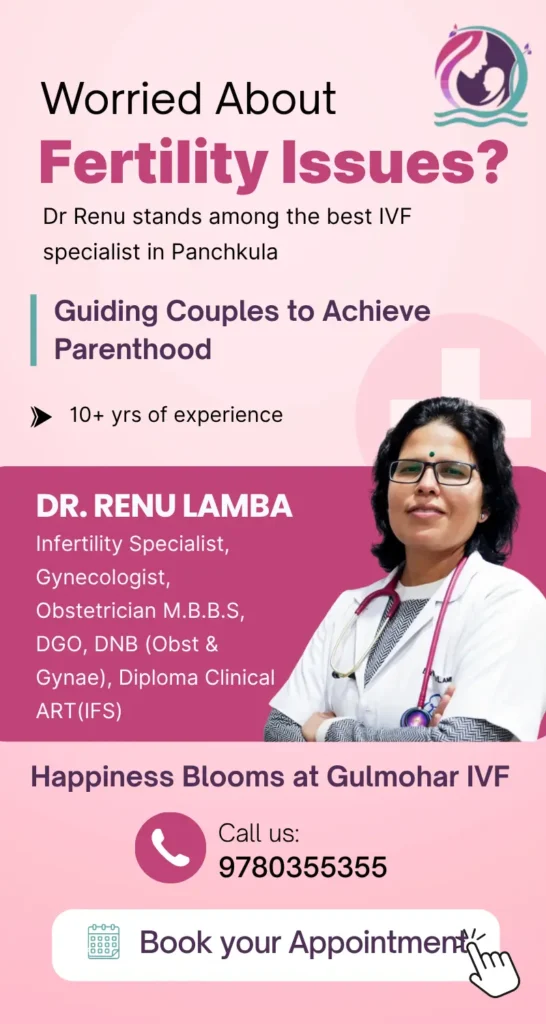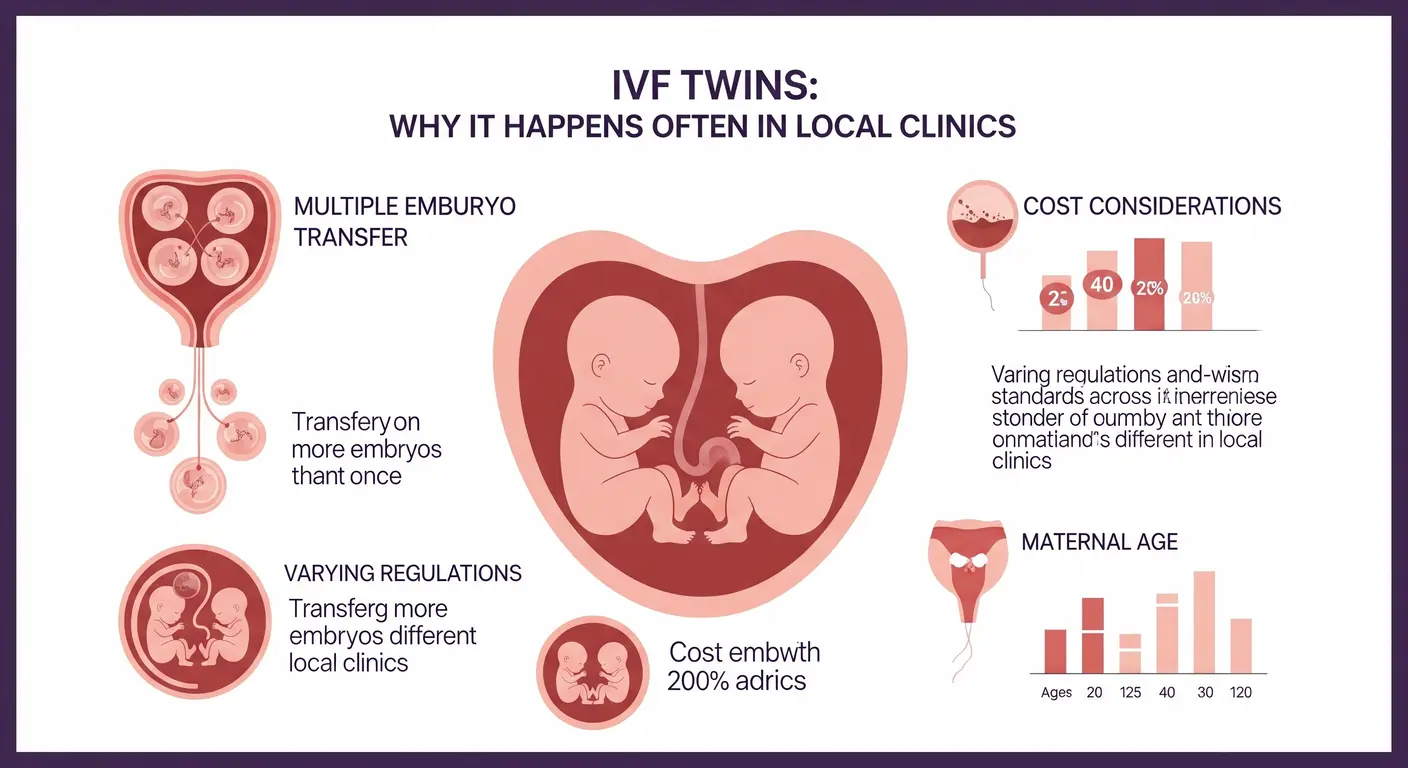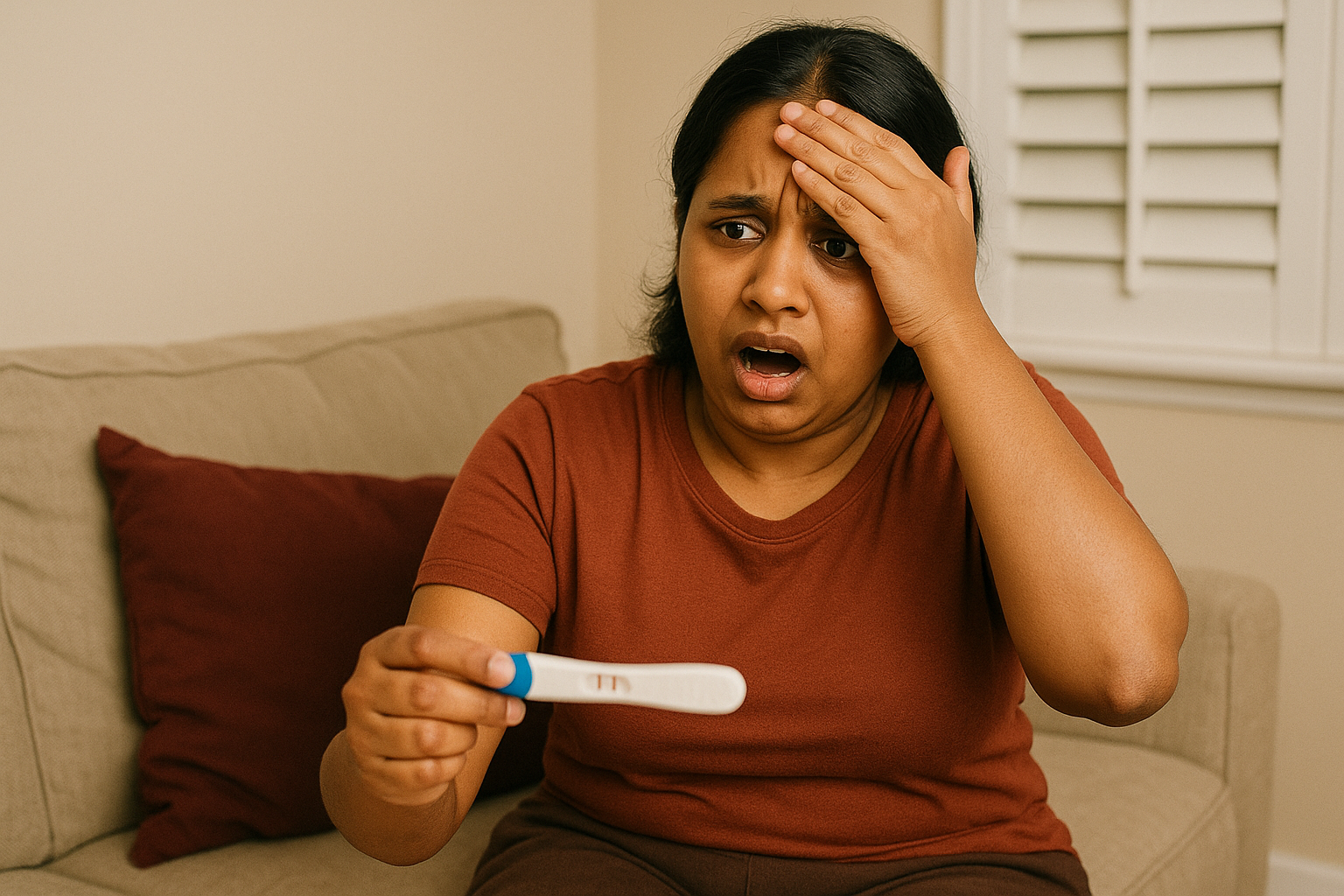PCOS and Fertility: Why Getting Pregnant Can Be Harder
Polycystic Ovary Syndrome (PCOS) is one of the leading causes of infertility among women today. It affects hormone levels and ovulation, making it harder for women to conceive naturally.
But here’s the good news: With the right medical support and timely treatment, most women with PCOS can get pregnant.
At Gulmohar IVF, Panchkula, we specialize in offering personalized fertility plans for women with PCOS, whether you’re trying to conceive naturally or through assisted reproductive techniques.
Why Does PCOS Cause Infertility?
Women with PCOS often have:
- Irregular or absent ovulation due to hormonal imbalance
- Higher levels of androgens (male hormones)
- Insulin resistance, which affects egg development
- An increased number of small cysts in the ovaries
These factors make it difficult for eggs to mature and release, lowering the chances of conception.
💡 Related Read: Wondering if PCOS is behind your symptoms? Learn Common Causes of Infertility & When to Seek a Specialist
Fertility Treatment Options for PCOS
Depending on your age, severity of PCOS, and how long you’ve been trying to conceive, your doctor may suggest one or more of the following treatments:
1. Lifestyle Changes & Natural Management
Before starting medication, simple changes can sometimes restore ovulation naturally.
✔ Maintain a healthy weight (BMI 18.5–24.9)
✔ Follow a low-carb, high-protein diet
✔ Reduce sugar intake
✔ Get 30 minutes of daily exercise
✔ Practice yoga or stress-relief techniques
Some women start ovulating naturally within a few months of adopting these changes.
💡 Related Read: Discover Natural Ways to Boost Fertility Before Starting Treatment
2. Ovulation Induction with Medications
If lifestyle changes alone aren’t enough, doctors may prescribe medications to stimulate ovulation:
- Clomiphene citrate (Clomid) – First-line treatment to trigger egg release
- Letrozole – Especially effective in women with PCOS; works by reducing estrogen temporarily to boost ovulation
- Metformin – For women with insulin resistance; helps restore regular periods
- Gonadotropin injections – Used when oral medications don’t work
Regular ultrasound monitoring is done to track follicle growth and avoid overstimulation.
3. Intrauterine Insemination (IUI)
If ovulation is restored but natural pregnancy still doesn’t occur, IUI is the next step.
How IUI works for PCOS:
- Ovulation is stimulated with oral meds or injections
- Sperm is processed and directly inserted into the uterus during ovulation
- Increases chances of fertilization when timing is crucial
IUI is less invasive and more affordable than IVF and often recommended for women under 35.
💡 Related Read: Still confused? Learn the difference between IVF vs. IUI: Which Fertility Treatment is Right for You?
4. In Vitro Fertilization (IVF)
For women with severe PCOS or those who haven’t had success with medications and IUI, IVF offers the highest success rate.
IVF for PCOS typically involves:
- Controlled ovarian stimulation with fertility injections
- Retrieving multiple eggs and fertilizing them in a lab
- Transferring the healthiest embryo(s) into the uterus
Benefits of IVF for PCOS patients:
- Better control over egg development
- Can avoid complications like OHSS with proper protocol
- Allows embryo freezing for future use
At Gulmohar IVF, we use mild stimulation protocols and advanced lab techniques to ensure safe and effective IVF outcomes for PCOS patients.
💡 Related Read: Learn about Success Factors in IVF: Lifestyle, Age & Medical Factors
5. Ovarian Drilling (In Select Cases)
For women who don’t respond to medication, a minor surgical procedure called laparoscopic ovarian drilling may be recommended.
- Helps reduce androgen levels
- Can restore natural ovulation in many cases
- Usually considered when other options fail
This procedure is done under anesthesia and is typically minimally invasive.
When Should You Start Treatment for PCOS-Related Infertility?
Consult a fertility specialist if:
- You’ve been trying to conceive for over 6–12 months without success
- Your periods are irregular or absent
- You’ve had multiple miscarriages
- You’re over 35 and have PCOS symptoms
- You’ve tried ovulation medications but haven’t conceived
The earlier you start, the better your chances.
Final Thoughts: There is Hope After PCOS
PCOS doesn’t mean you can’t become a parent. It simply means you might need the right medical guidance. At Gulmohar IVF, we’ve helped hundreds of women with PCOS become mothers through a combination of:
✔ Personalized treatment
✔ Hormonal support
✔ Advanced fertility care
📍 Location: Panchkula, Haryana
📞 Call Us: 91 9780 355 355
📅 Schedule Your Consultation Today
📢 Follow our blog for expert updates on PCOS, infertility, and IVF care.
FAQ Section: Fertility & PCOS
1. Can women with PCOS get pregnant naturally?
Yes, but many women require ovulation support through medications or fertility treatments like IUI or IVF.
2. Which is better for PCOS: IUI or IVF?
It depends on the case. IUI is less invasive and used initially. IVF is recommended for severe PCOS or failed IUI cycles.
3. Does PCOS increase the risk of miscarriage?
Yes, due to hormonal imbalance and poor egg quality, miscarriage risk can be higher without treatment.
4. Is IVF safe for PCOS patients?
Yes, when performed under expert supervision with the right medication protocol to avoid OHSS (Ovarian Hyperstimulation Syndrome).
🔒 Disclaimer
This article is for informational purposes only and does not replace professional medical advice. For diagnosis and treatment, consult a qualified fertility specialist..










